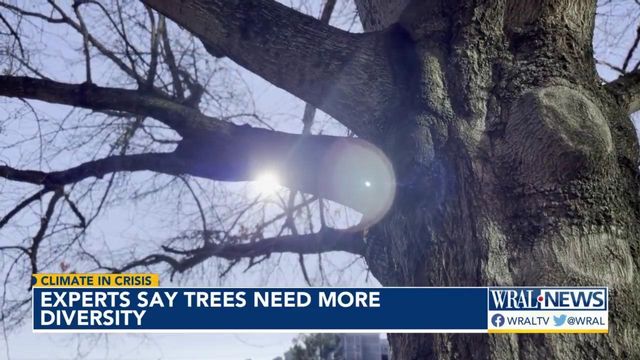New urban landscapes need to survive climate changes decades away
As communities prepare to receive $1.5 billion in federal funding to support urban forestry, experts say it's important to plant diverse and resilient trees to avoid mass mortality events from climate change.
Posted — UpdatedRaleigh and Durham are two of the fastest-growing cities in the U.S., but as the skyline adapts, experts say the landscape should too.
North Carolina communities are anticipating federal funds to plant more trees, part of the $1.5 billion approved by Congress last year to support urban forestry. However, officials are challenged with the task of planting trees today that can survive the changing climate of tomorrow.
NC State forestry health professor Kelly Oten suggests considering incorporating species of trees that typically grow further south. "The trees we plant today may not mature for decades to come, so being able to have trees that are resilient to a warming climate is really important," Oten said.
Climate change can also enable the spread of disease, invasive species, and other urban canopy threats.
"Because winters aren't getting as cold, these destructive insects are able to expand their range, go to places where they’ve never been detected before, and cause problems and kill trees," Oten said.
Many cities that relied too heavily on one tree type have lost wide swaths of their landscape to pests or pathogens, such as dutch elm disease. But Oten says a wide diversification of tree species can offer protection.
"That way if something does come in and impacts a certain type of tree, it doesn’t take out that entire urban canopy," Oten said.
Some experts recommend planting no more than 5% of any one genus of tree, but that can be hard to reach between budget and supply restrictions.
Related Topics
• Credits
Copyright 2024 by Capitol Broadcasting Company. All rights reserved. This material may not be published, broadcast, rewritten or redistributed.





